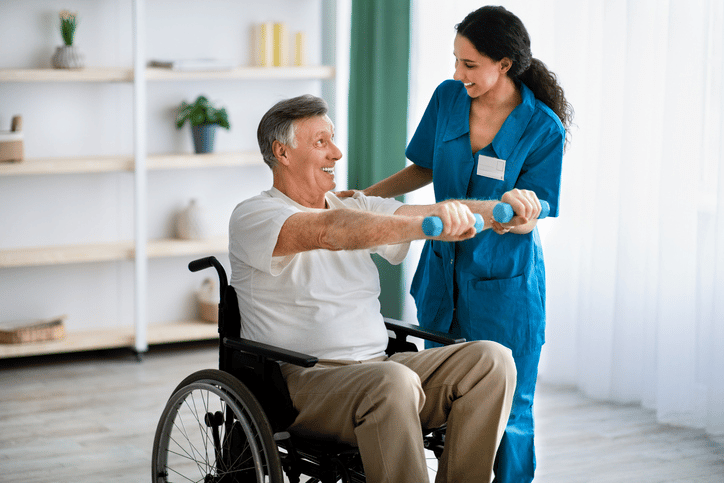The Correct Way to Care for a Senior Recovering from a Stroke

If your senior loved one has had a stroke, it’s essential that they get the right treatment and the proper care during their recovery. Strokes are a very serious and potentially life-threatening medical condition, and if you’ve found yourself becoming a caregiver for your loved one while they recover from a stroke, our team at UMC has put together this helpful guide to assist. Please contact us with any questions.
First Steps for Caregivers
- Educate yourself about strokes and stroke recovery. Many people don’t know anything about strokes until someone close to them has one, so a great first step is education. We recommend joining local stroke recovery groups, speaking with the care team at your loved one’s hospital, and reading everything you can about stroke rehabilitation.
- Find out what expenses insurance covers. Medicare and most health insurance companies usually cover the majority of expenses for your loved one’s hospitalization and rehabilitation, but you need to verify which hospitals and care providers are included in their coverage.
- Understand what level of care your loved one needs, and assess your ability to provide this care. It’s normal to want to care for your loved one yourself, but sometimes their condition requires professional care. It’s okay to ask for help, and it’s okay if you can’t provide the full spectrum of care yourself.
Coming Home After a Stroke
Once your loved one is ready to come home, it’s important to keep these things in mind as they make the transition:
- You may need to make your home safer. This includes adding grab bars in the bathroom, removing smaller rugs that can be tripping hazards, and ensuring your loved one won’t need to climb any stairs.
- Be prepared for your loved one to exhibit behavioral changes. Losing mobility and other functions, including drastic changes to their quality of life, can be very difficult for the stroke survivor, and emotions and tensions can run high.
- Pay attention to any signs of depression. It’s common for stroke survivors to experience depression, and it can unfortunately negatively impact or n hinder their recovery.
Taking Care of Yourself
While it’s wonderful that you’re taking such great care of your loved one as they recover, it’s essential to check in with yourself regularly: Are you burned out? Are you getting enough sleep? How is your mental health? Are you falling behind in other areas of your life? Do you feel emotionally drained? The better you take care of yourself, the better you’ll be able to care for your loved one during their recovery. You may want to check out local stroke recovery support groups, or join online forums where you can share your experiences with people who understand. Don’t put any pressure on yourself to be perfect or to do everything on your own.
Get Help if you Need it
Depending on the severity of your loved one’s stroke, they may require professional care while they recover. Home care assistance is available to ensure your loved one gets the care they need, and to help relieve you from your around-the-clock caregiving duties.
If you have questions about caring for a senior after a stroke, or if you need support, please contact our team at UMC today. Our experienced team of caregivers provide respite care to seniors who are recovering from a stroke, and we will be happy to help.




